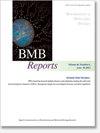Loss of hepatic Sirt7 accelerates diethylnitrosamine (DEN)-induced formation of hepatocellular carcinoma by impairing DNA damage repair
IF 2.9
3区 生物学
Q3 BIOCHEMISTRY & MOLECULAR BIOLOGY
引用次数: 0
Abstract
The mammalian sirtuin family (SIRT1–SIRT7) has shown diverse biological roles in the regulation and maintenance of genome stability under genotoxic stress. SIRT7, one of the least studied sirtuin, has been demonstrated to be a key factor for DNA damage response (DDR). However, conflicting results have proposed that Sirt7 is an oncogenic factor to promote transformation in cancer cells. To address this inconsistency, we investigated properties of SIRT7 in hepatocellular carcinoma (HCC) regulation under DNA damage and found that loss of hepatic Sirt7 accelerated HCC progression. Specifically, the number, size, and volume of hepatic tumor colonies in diethylnitrosamine (DEN) injected Sirt7-deficient liver were markedly enhanced. Further, levels of HCC progression markers and pro-inflammatory cytokines were significantly elevated in the absence of hepatic Sirt7, unlike those in the control. In chromatin, SIRT7 was stabilized and colocalized to damage site by inhibiting the induction of γH2AX under DNA damage. Together, our findings suggest that SIRT7 is a crucial factor for DNA damage repair and that hepatic loss-of-Sirt7 can promote genomic instability and accelerate HCC development, unlike early studies describing that Sirt7 is an oncogenic factor.肝脏 Sirt7 的缺失会损害 DNA 损伤修复,从而加速二乙基亚硝胺(DEN)诱导的肝细胞癌的形成
哺乳动物 sirtuin 家族(SIRT1-SIRT7)在基因毒性胁迫下调节和维持基因组稳定性方面发挥了多种生物学作用。SIRT7是研究最少的sirtuin之一,已被证明是DNA损伤应答(DDR)的关键因素。然而,一些相互矛盾的结果认为 Sirt7 是促进癌细胞转化的致癌因子。为了解决这一矛盾,我们研究了SIRT7在肝癌(HCC)DNA损伤调控中的特性,发现肝脏Sirt7的缺失会加速HCC的进展。具体来说,在注射了二乙基亚硝胺(DEN)的Sirt7缺失肝脏中,肝肿瘤菌落的数量、大小和体积都明显增加。此外,与对照组不同,肝脏Sirt7缺失时,HCC进展标志物和促炎细胞因子的水平显著升高。在染色质中,SIRT7 通过抑制 DNA 损伤下 γH2AX 的诱导而稳定并定位在损伤位点上。总之,我们的研究结果表明,SIRT7是DNA损伤修复的关键因子,肝脏缺失Sirt7会促进基因组的不稳定性并加速HCC的发展,这与早期关于Sirt7是致癌因子的研究不同。
本文章由计算机程序翻译,如有差异,请以英文原文为准。
求助全文
约1分钟内获得全文
求助全文
来源期刊

BMB Reports
生物-生化与分子生物学
CiteScore
5.10
自引率
7.90%
发文量
141
审稿时长
1 months
期刊介绍:
The BMB Reports (BMB Rep, established in 1968) is published at the end of every month by Korean Society for Biochemistry and Molecular Biology. Copyright is reserved by the Society. The journal publishes short articles and mini reviews. We expect that the BMB Reports will deliver the new scientific findings and knowledge to our readers in fast and timely manner.
 求助内容:
求助内容: 应助结果提醒方式:
应助结果提醒方式:


